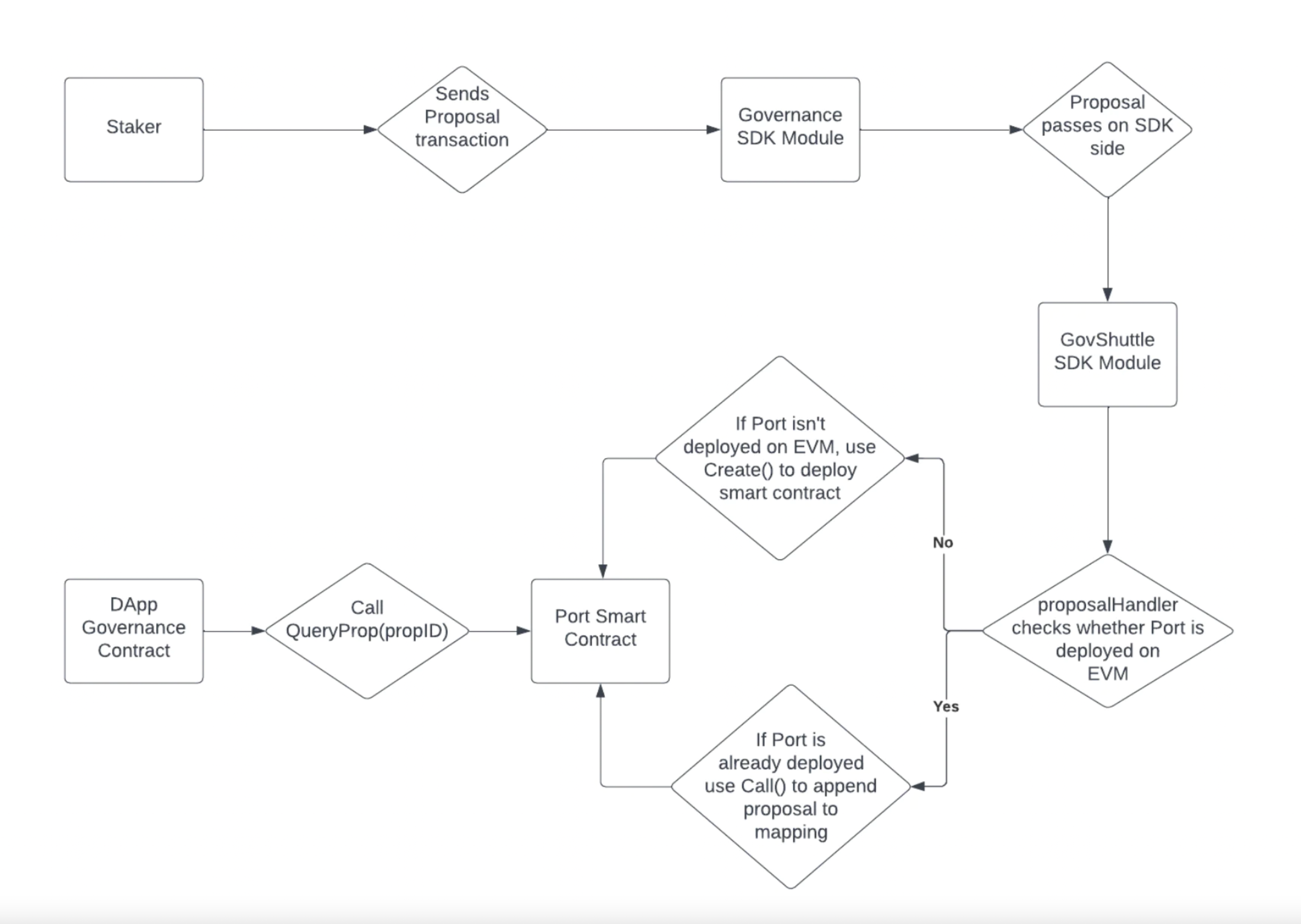In order for Canto to implement network governance control over applications deployed to the EVM, a method of transporting and verifying information from Cosmos SDK governance is required. This is where Canto’s custom GovShuttle module comes into play. This module allows proposal information from SDK governance to be read and implemented by applications on the EVM.
Passing information from SDK Module to EVM:
The GovShuttle module is a Cosmos SDK module that unifies network and DApp governance. The module allows stakers of Canto to create and vote on governance proposals that can be transported to a proposal store contract called Port on Canto’s EVM. On initialization, GovShuttle’s keeper checks to see if the Port exists. If it hasn’t been deployed, the keeper will use the DeployMapContract function to deploy the Port.
if nonce == 0 {
*k.mapContractAddr, err = k.DeployMapContract(ctx, lm)
if err != nil {
return nil, err
}
return lm, nil
}
This contract is wholly owned by the module itself and cannot be modified by any other account. Deployment of this contract is handled by the GovShuttle’s keeper and at its core utilizes the Create function in Geth.
After deployment of the Port, users have the option to submit special proposal types that are routed to the GovShuttle. On passing, the GovShuttle’s keeper calls a function called AppendProposal , which uses Geth’s Call function to add the proposal’s data to the Port. The Port can then propagate these proposals to DApps on the EVM.
func handleLendingMarketProposal(ctx sdk.Context, k *keeper.Keeper, p *types.LendingMarketProposal) error {
err := p.ValidateBasic()
if err != nil {
return err
}
_, err = k.AppendProposal(ctx, p)
if err != nil {
return err
}
return nil
}
Reading Shuttled Data in EVM:
Reading a proposal written to the Port is as simple as querying the contract using the function QueryProp. This function takes in a proposal id as an argument and returns the corresponding proposal’s data. In doing so, contracts on Canto’s EVM can now read data from proposals passed from the Cosmos SDK. This allows any application to become a Free Public Good by integrating its governance directly into network governance with very little modification. Technically speaking this system can be generalized for any form of cross runtime information passing including additional proposal types allowing for a highly flexible, application-agnostic interface.
Below is a visual representation of how this system works:

By using GovShuttle and generalizing it further for additional data types, Canto stakeholders can govern an arbitrary number and type of applications on the EVM. This will allow our community to have the control and flexibility over Free Public Infrastructure that is necessary for the stability and growth of Canto.
About Plex
Plex is a group of chain-native builders with backgrounds in HFT, mechanism design, and software development. We are currently exploring the intersection of decentralized finance and social coordination. If interested in collaboration, please reach out at twitter.com/Plex_Official.